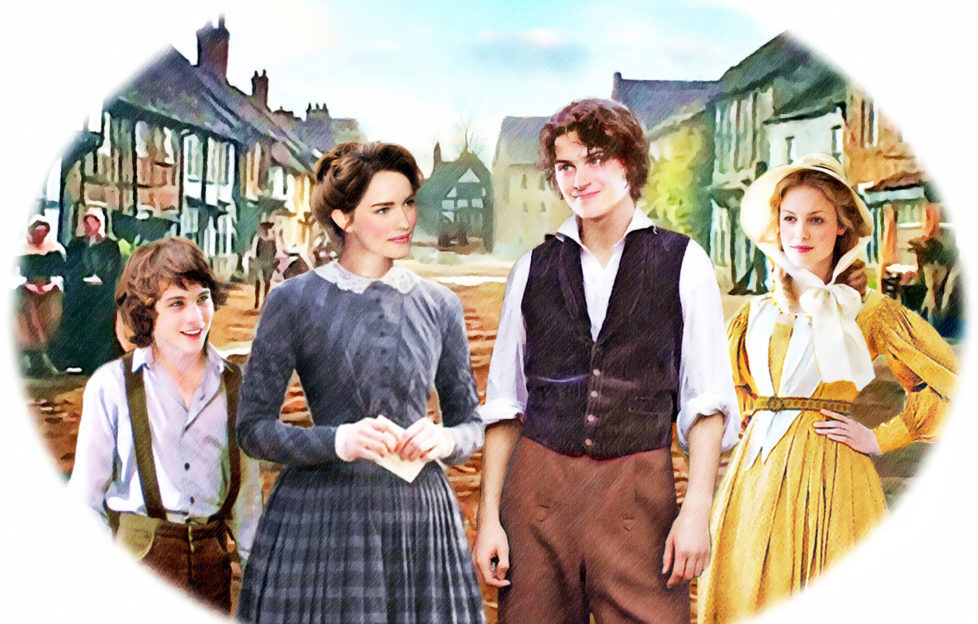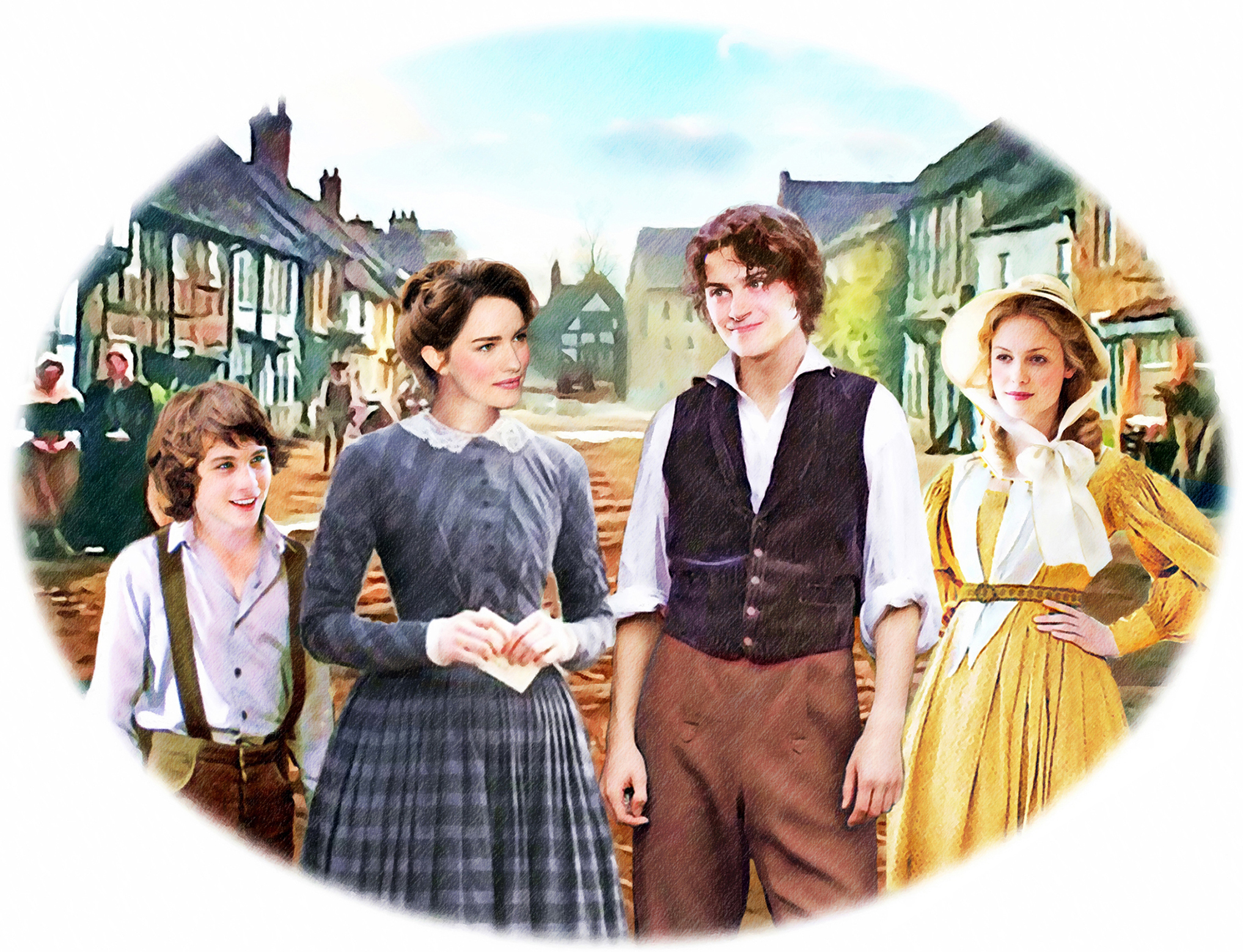Alfred’s Emporium – Episode 14

Alfred's Emporium by Louise Stevens
« Previous Post- 1. Alfred’s Emporium – Episode 01
- 1. Alfred’s Emporium – Episode 14
“Are you quite well, Delia?” Mrs Bassett asked from the couch. “You have been staring out into the garden for a quarter-hour.”
Mrs Bassett was concerned for her daughter. Delia was not normally given to long periods of contemplation. In fact, she was rarely able to finish a whole page of a book.
“You seem rather pensive, and you haven’t visited Augusta or Lydia recently.”
Could she be brooding because her friends were engaged and she was not?
If there was one matter Mrs Bassett was sure of, it was that her daughter was destined for a more advantageous match than the offspring of a retired colonel or banker’s son.
“Mama,” Delia asked, looking absently out of the window, “when you married Papa, how long did it take him to make his fortune? I mean, were you ever poor?”
“What an odd question,” Mrs Bassett remarked. “No, never poor. Your father’s family helped, and there was my dowry. We got along quite well.”
“But could one ever be happy and poor, do you think?”
“Another odd question,” Mrs Bassett replied, looking up from her book. “It depends, of course, on the degree of deprivation.”
Delia turned from the window and began sauntering about the room.
“I don’t think I should like to be poor,” she mused. “Do you think, Mama, if I married someone who was not rich, that Papa would help him to get on?”
Mrs Bassett’s expression did not change, but at the mention of marriage her every sense was alert.
“That would depend,” she answered carefully, “on his character and situation. And whether he was deserving of you. My darling, are you saying there is someone you care for?”
“I’m not sure I care for anyone,” Delia declared. “And even if I did, it does not mean I would accept him if he were to ask.”
Mrs Bassett forced herself to delay, turning another page in her book.
“Have I met him?” she asked lightly. “I thought I knew all of your friends.”
“You would not know him,” Delia replied, too quickly for her mother’s liking. “That is, if there were such a person.”
“But supposing there were. Would you be able to tell me who he is?”
“He’s . . . Oh, I don’t know,” Delia said, flopping into a chair and folding her arms. “I don’t want to talk about this any more.”
Mrs Bassett was too shrewd to let her frustration show. Conscious that they were the most important family in Datcherford, her one unfulfilled ambition was a fine marriage for her daughter.
If, as it seemed, Delia had found a suitor, she might have been pleased. But talk of poverty, added to her daughter’s evasiveness, was causing her concern.
There obviously was a young man involved, she decided. But why would Delia not tell her his name?
Despite the apparent calm, her mind raced through the families of all the county’s good society, but no name came to mind.
Delia never ventured out of Datcherford without her mother. She only went out to take her shopping list to Hapstall’s shop and . . .
Mrs Bassett’s hand gripped her book so tightly that her knuckles whitened.
Her mind could not accept the notion. There was that young man who had taken over the shop from his father. The one her silly housemaids giggled about.
Breathing deeply, willing herself calm, she turned another page of her book.
“Do you know, Delia,” she said, “I was thinking we might take a little holiday. You and I have had so little diversion since your party.”














